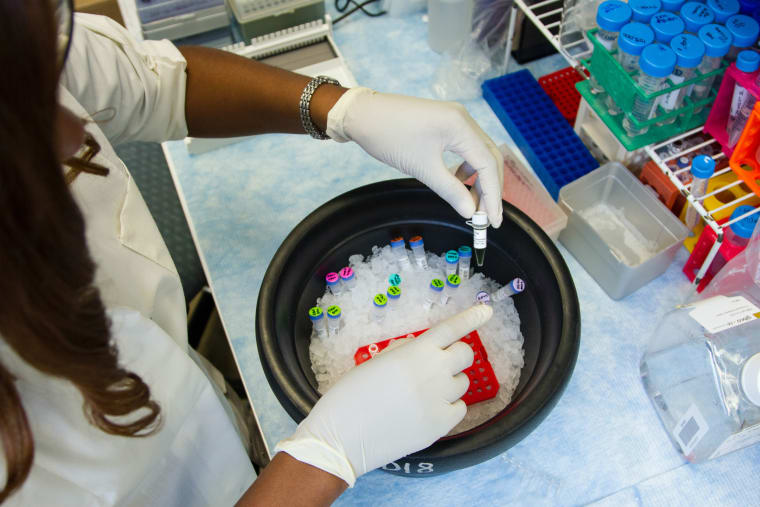Through her cancer experience, Tiffany learned the importance of self-advocacy: “It is so frustrating for me – I have been involved with the NOCC since I was diagnosed, and the running thread is advocating for yourself. Because of systemic misogyny in healthcare, women – especially those dealing with symptoms that mimic menopause – are often dismissed. This delays diagnosis, which delays treatment. So you have to advocate for yourself often and loudly. That conversation has not changed. It puts more responsibility on the patient, but there is no other option.” As a volunteer with the National Ovarian Cancer Coalition, Tiffany supports people who are just diagnosed, are in treatment, or who are returning to treatment. She guides them in advocating for themselves and asking for what they need.
Tiffany has also taken her advocacy on a different path: influencing research. While she is grateful for the individual support she received while undergoing treatment and continues to support people in the same position, Tiffany wanted to do something that could impact more people and change the trajectory of patients diagnosed with ovarian cancer. It was as a consumer reviewer for the Ovarian Cancer Research Program (OCRP) under the Congressionally Directed Research Programs that she found an opportunity to do just that. This program builds panels of patients with lived experiences, scientific experts, and researchers to read clinical research proposals and decide which ones should receive funding from the federal government. Tiffany read through research proposals with particular questions in mind: what can we fund right now that will make an impact? How does that impact get distributed? Would this research apply to a trans person? Would this research be helpful to a low-grade ovarian cancer diagnosis? Through this project, housed in the Department of Defense, Tiffany and other people who had or have ovarian cancer get the opportunity to influence research that could make a tangible difference in the experience of cancer patients and hopefully save lives.
